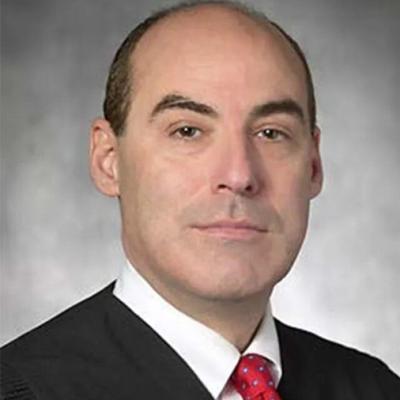
California Fourth District Appellate Justice David Rubin
PALM SPRINGS - A state appeals panel has agreed that although a charter city is involved and invested into a private development project, that work isn’t exempt from California’s prevailing wage law.
The litigation involves the Coachella Valley resort city of Palm Springs, which as a charter city passed a 2002 ordinance exempting itself from paying prevailing wages on “municipal affairs” projects. According to court documents, the logic behind the exemption is that charter (or home rule) communities can opt to save taxpayer resources by paying laborers less when completing projects that will directly benefit the public.
The relevant development is a nearly vacant 13-acre mall complex that Palm Springs Plaza bought for $17 million in 2001, and a 2010 agreement between PSP and the Palm Springs Community Redevelopment Agency allowing conversion into the Desert Fashion Plaza, which included demolition, façade upgrades and new construction centered around a modern cinema multiplex.
When Palm Springs hired a financial consultant to evaluate the project, the estimated costs cleared $100 million with up to $45 million needing to come from public revenue, according to court records. A 2011 project financing agreement described the effort as “critical to restoring economic vitality to downtown Palm Springs.”
The city ended up spending more than $51 million, while PSP put up $75 million and secured construction loans for another $68 million. In 2017, during phase one construction, the Center for Contract Compliance - a labor union group with a mission to investigate potential prevailing wage violations - asked the state Department of Industrial Relations to determine whether the project was subject to the ordinance exempting municipal projects from prevailing wage requirements.
The DIR found in August 2018 that the work was subject to prevailing wage laws, and a 2020 administrative appeal process affirmed that finding. In July 2022, PSP asked Riverside County Superior Court Judge Eric Keen to overturn that determination. The city joined in that petition. After Judge Keen denied the request, PSP took the matter to the California Fourth District Appellate Court, at which point United Union of Roofers, Waterproofers and Allied Workers, Local 81, filed a support brief for the DIR through Molteni Employment Law.
Justice David Rubin wrote the opinion, filed June 13; Justices Judith McConnell and Jose Castillo concurred.
Both sides cited a 2012 California Supreme Court opinion, State Building & Construction Trades Council of California v. City of Vista involving a project in which the municipality engaged in the procurement process and paid workers less than the local prevailing union wage. Rubin said undisputed evidence shows Palm Springs spent tax money on the mall redevelopment, but differed from PSP’s position that Palm Springs “retained fiscal control over” spending all the construction money.
“For years PSP sought to redevelop the subject property, refusing to enter into an agreement with the city until it received a certain rate of a return on its private investment,” Rubin wrote. “Although the city also received a benefit — eliminating blight in the downtown area and increasing the city’s sales and property tax revenues — the facts do not support PSP’s contention that ‘the entire project was built as to enhance the value of the city’s public improvements and its public investment in the project.’ Rather, we find the facts demonstrate the converse is true: the project was primarily built to enhance the value of PSP’s private improvements (it owned and managed postconstruction concerns, including retail shops, restaurants, cafes and public gathering spaces) and its private investment.”
The panel found PSP had majority control of the project, both through being responsible for 75% of the overall funding as well as selecting contractors and owning and managing the private improvements post completion.
When the project concluded, the city’s ownership stake included parking structures, roads, open spaces and property it bought back from PSP, including a parcel it later developed as an events center.
The panel further rejected as inapplicable PSP’s citations to other decisions, finding none of them reached the root issue of whether a city’s contribution to a private project could exempt that developer from having to pay the more expensive prevailing wages.
The DIR is allowed to recover its costs on appeal.
Palm Springs Promenade is represented by attorneys from Buchalter.
The Department of Industrial Relations is represented by its Chief Counsel Ken Lau and staff counsel Mirna Solis.




